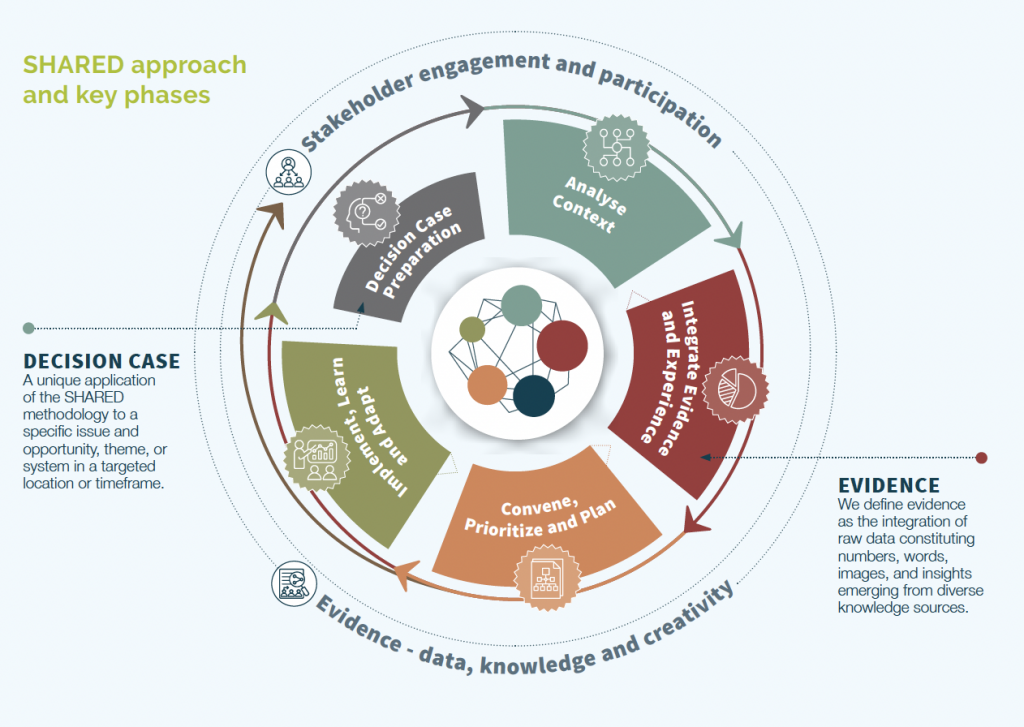Applying human-centred engagement with evidence to shift decision culture, SHARED works to strengthen the linkages across science, practice and policy. Through a tailored process to decision-making, centered around people and knowledge, transformational change toward sustainable development can result.

Integrated Landscape Management (ILM) involves navigating the complexity and uncertainty inherent in balancing the diverse interests of stakeholders. Multi-stakeholder processes are critical for transforming landscapes into more equitable and climate-resilient systems. Engaging stakeholders is a long-term investment in systemic change, as it is essential for co-designing an impact pathway that reflects the shared goals of all involved. These engagement approaches are applied at various levels, from policy processes to local communities. For meaningful collaboration, the processes must be open, accountable, inclusive, transparent, and legitimate. This requires innovative tools and strategies that foster trust, reduce power imbalances, elevate marginalised voices, and promote collective learning. Achieving this enhances the sustainability of partnerships and increases the likelihood of creating more resilient and equitable landscapes.
This toolkit has been designed around the SHARED engagement planning framework. The key objective of the toolkit is to assist project teams within the Landscapes For Our Future (LFF) programme and broader stakeholders working to manage and execute landscape initiatives. The SHARED engagement framework and structure of the toolkit brings in expertise, tools and processes from the LFF network and key insights from associated scientists and practitioners which have been collated as part of our practitioner series Landscapes in Practice (LIP).
The toolkit provides a mix of specific tools to execute a structured engagement process which have some guidance on steps, materials and timelines. The key essence of the toolkit is to provide a mix of practical exercises, tools and key reflections to help empower project teams to enhance their stakeholder engagement work. Project teams do not need specialised external help to execute engagement processes and so this toolkit aims to provide practical exercises and wider reflections around stakeholder engagement processes including relationships and power as aspects to reflect on. The toolkit is not a linear set of exercises and the tools can be tailored to different project contexts.
The toolkit – still in draft version at present – also contains reflections and insights which come from engagement with LFF teams, including a virtual training, detailed project meetings and co-learning opportunities.



